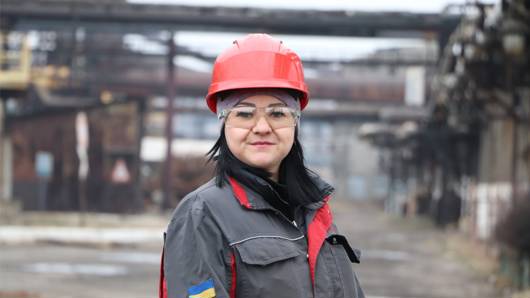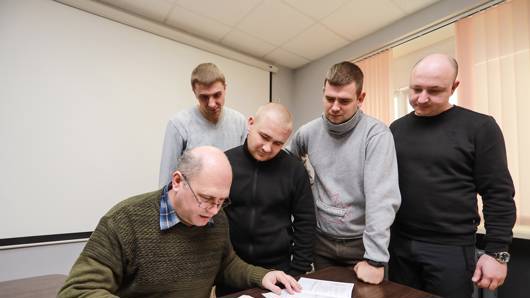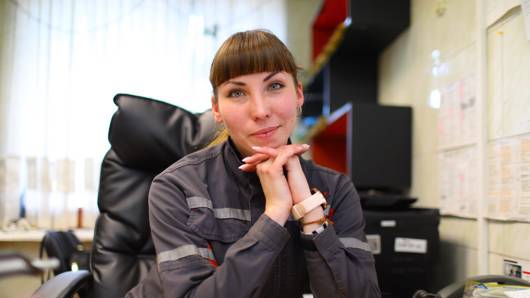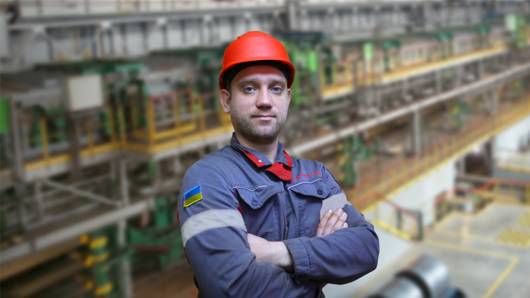War catches you off guard. And it doesn't matter whether you are a president or a mechanic, a man or a woman. Absolutely everyone had to take on more responsibility. It is especially hard for Ukrainian women who combine motherhood with a career amid regular aid raid sirens and under the constant threat of missile attacks.
Alona Farafon is an underground hoist operator at the third crushing plant of Metinvest Group's Northern Iron Ore Enrichment Works. After more than a year of the full-scale war, she has learned to live in wartime circumstances, to combine a challenging work schedule with night shifts and her job duties with her motherly responsibilities. All the household chores and difficult decisions fell on her shoulders. Her husband Andrii, also an employee of Northern GOK, has been serving in the Armed Forces of Ukraine since 2019 and defending Ukraine's independence in the Donetsk sector since last year.
"I give my best every day at work"
"I understand that today, when our men are defending our land, a lot depends on us, women. First and foremost, here at the production site, we are contributing to the stable operation of Metinvest Group, one of the largest Ukrainian companies that are anchoring the Ukrainian economy in these difficult times. In some way, this is our economic frontline, and I am trying to give my best at work to maximise my contribution to the stable operation of our plant.
Alona Farafon's current role is associated with a lot of responsibility, especially under the threat of missile attacks and emergency power outages after enemy hits on power facilities: she operates a machine that carries people and cargoes underground and up. The machine is somewhat reminiscent of a funicular: it is a small car without doors and with a platform with seats for workers and a separate platform for equipment. The length of the inclined shaft is 624 metres. Alona usually transports 3-4 employees and cargo at a time. The machine moves at a speed of up to 2 km per hour. Alona works "blindly" (due to the specifics of her job), relying on sound signals from her colleagues.
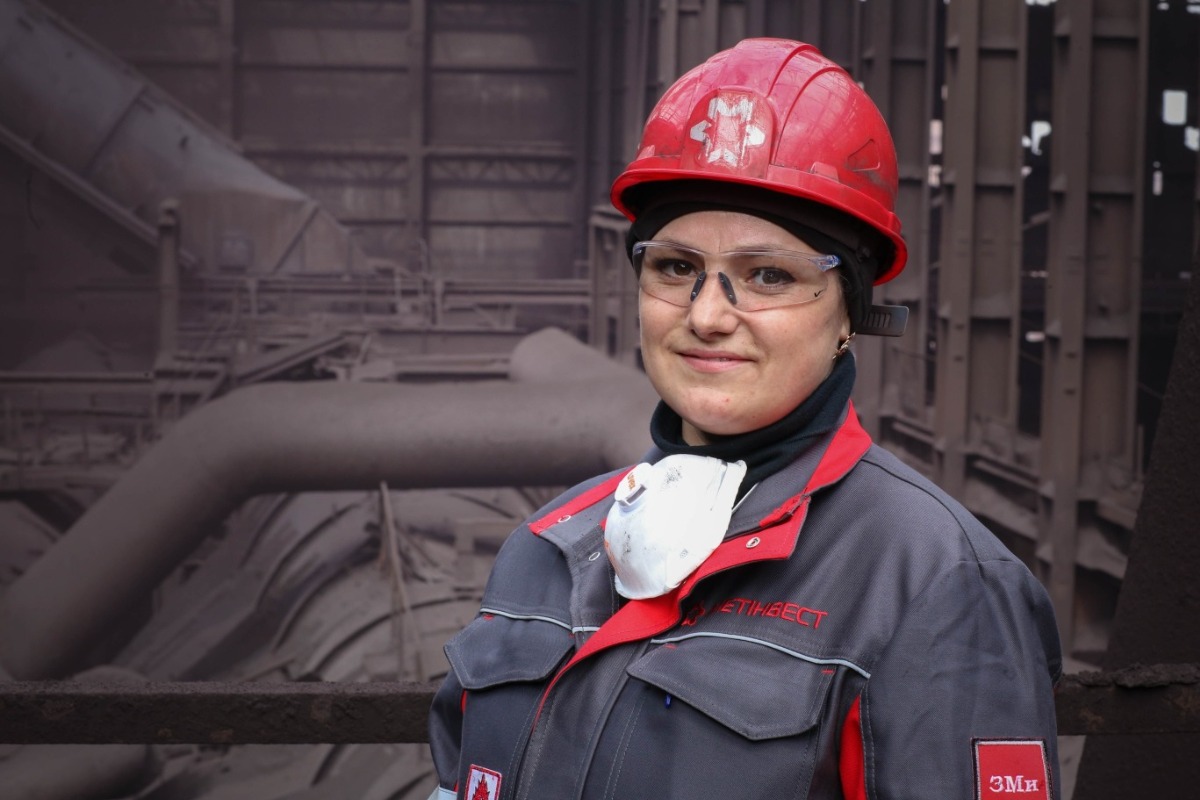
"I monitor, control, check, adjust, and fix simple malfunctions whenever possible, going underground, and in some cases, calling for repairmen. And so it goes every shift. It doesn't seem to be physically demanding, but I stay vigilant for 12 hours, monitoring the movement of the machine, its condition, and responding promptly to air raid alerts, because I am responsible for the safety of people.
Previously, Alona Farafon worked in the pelletising shop as a hot return fines proportioning operator. At that time, the quality and timeliness of the raw material supply depended on it.
"Despite its harsh nature and strict requirements, work at a production site requires attention and care. These are purely feminine traits. But whether I work with people or with machines, I try to put my heart and soul into it and enjoy doing my job as much as I can. Now this is our frontline, where we are united with our colleagues, where we benefit both the state and the company, and, of course, provide for our families.
"I have learned to live in wartime circumstances"
The Farafons have two children: a 19-year-old daughter, who is at college, and a 13-year-old schoolboy son. Commitments at work, meeting the needs of her children, running a household, and keeping safe are all part of Alona's everyday life. And all this against a disturbing background of war.
Alona Farafon and her children spent the first four weeks of the war in a cellar in a house outside the city. Then, when possible, every weekend she would take her children away from Kryvyi Rih, which was regularly the target of enemy missile attacks. For convenience, she had to learn to drive: her husband bought a car to make it easier for her and the children to get out of the city.
The family quickly adapted to the wartime needs. There is always a supply of water on the balcony. Alona prepared for blackouts in advance: she stocked up on lanterns and batteries to survive the winter without light and heat.
"The war has complicated everything, because, aside from paying attention to the production process, you cannot help thinking about your husband on the front line and your children who are at home alone," says Alona. "And these are not your typical questions mothers have such as whether they have eaten or done their homework. These are completely different thoughts: were there any missile "hits" today? And if there were, did the children have time to hide when they heard the air raid siren? Were they afraid of the roar of planes or the sound of explosions? You cannot get up, leave your workplace and go home, no matter what the threat of missile attack. You pull yourself together and continue working until the end of the shift. Fortunately, we have phones, so my son can always tell me where he is, whether he has managed to get to the nearest shelter near the football stadium or is hiding in the corridor during the alarm...

War changes everyone. The first months after the invasion were the most difficult in this regard. Alona recalls:
"I remember those few days of the sheer shock. It was later followed by an adrenaline rush: I can do everything, I will survive whatever comes my way, I will do everything in my power to keep my family safe. We all have changed. But that's what I decided: war is not a reason to cut yourself some slack when it comes to yourself, your work, appearance, development, education, etc. Working hard, studying, taking care of your home, cooking delicious food, meeting your loved ones, helping the elderly - these are the important daily moments that make up our lives. You cannot give up on them. It is a woman's and a mother's duty to create a normal life for each family member (work, school, clubs, etc.). The fewer things you have to do, the more anxiety and fear you have, as far as I am concerned... I don't know how much a woman can take. Probably a lot. Both in terms of internal experiences and external circumstances. Because there is someone to do it for. The lives of your family and loved ones are the greatest value. And a woman will deal with all the problems in her favourite job, take care of the children, and help her husband as long as she has the strength and connections. We will get through this - this is who we are. I don't know what can break a woman as long as she has someone to fight for. Neither cold nor a blackout.

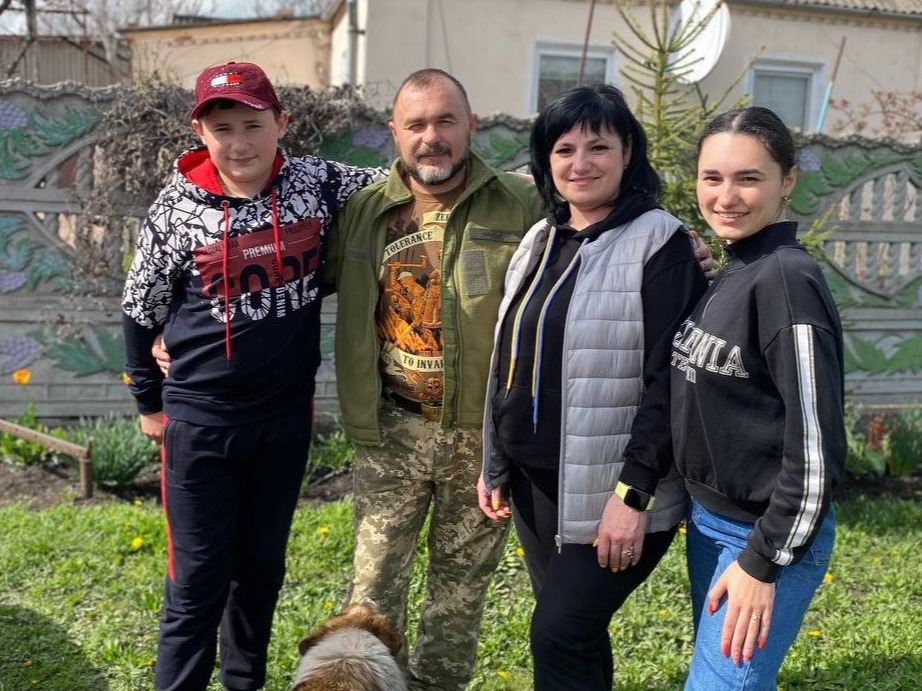
"I am trying to do more"
Last year, Alona went to the unit where her husband was serving together with volunteers who were heading there. It was near Borodianka, right after the de-occupation of the Kyiv region.
"I spent nearly a day there, slept a dugout, and learned about the minimalism and harshness of military life. It was enough to realize that we will never be able to fully understand those who are in the trenches... Everything is different there. Then my husband showed me what was left of a large village after the occupation... I can still see this image in my mind: a fence, and behind it only a pile of rubble. And there are dozens of such yards around... Since then, I have noticed that I have started smiling less. Seeing the war with my own eyes has made me more closed-off, quiet, and focused. You are trying to talk less and do more useful things."
The Farafons' large rented box is now popular with the military - friends and not only. They often bring various vehicles from the front line for repair.
"The military repair their vehicles or leave them here for a certain period of time before the next "rotation". For free, of course. I go there, open it, let them in, close it... They paint there, weld something, change wheels... The repair shop is close by; so, it is convenient for them. This is our small help to our army."
The story of Alona Farafon's resilience was shared with the participants of The Women For Ukraine charity event in New York dedicated to the heroism of Ukrainian women during the full-scale war.






